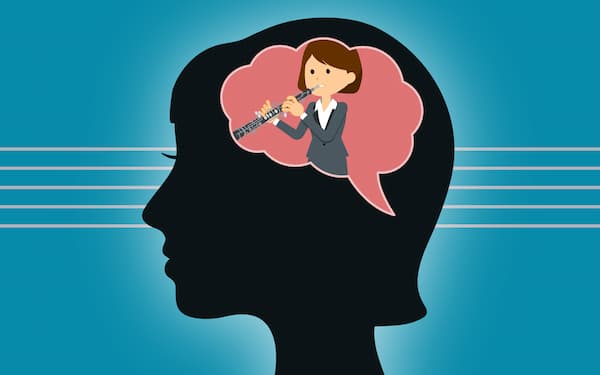Music is not just about technical skill; it’s about focus, confidence, emotional resilience, and the ability to perform under pressure. While hours of physical practice are essential, elite musicians worldwide are turning to mental training to enhance their abilities, just as top athletes do. Whether in world-class orchestras, conservatories, or among solo performers, mental training techniques help musicians refine their craft, overcome performance anxiety, and reach their full potential.
But what exactly is mental training? Where did it come from, and how is it being used today? Let’s dive into the fascinating world of psychological preparation in music.
What Is Mental Training?

Mental training is a set of psychological techniques designed to improve focus, confidence, and emotional control. Just as musicians spend years perfecting their instrument, they can also train their minds to enhance performance, manage stress, and maintain consistency.
These techniques help musicians:
- Improve concentration and avoid distractions.
- Overcome stage fright and performance anxiety.
- Boost confidence and self-belief.
- Enhance memory and mental rehearsal.
- Develop emotional resilience in high-pressure situations.
While physical practice remains essential, mental training offers tools to optimize that practice, ensuring musicians get the most out of their efforts.
How Mental Training Became a Game-Changer in Music
Mental training has its roots in sports psychology. In the mid-20th century, psychologists studying elite athletes realized that physical training alone wasn’t enough—mental strength played a crucial role in peak performance. Techniques like visualization, goal setting, mindfulness, and cognitive reframing became widely used by Olympic athletes, professional teams, and sports champions.
Musicians, who face similar pressures—high-stakes performances, intense practice schedules, and the need for extreme precision—began adapting these techniques to their own training. Today, major orchestras, conservatories, and individual musicians use mental training to sharpen their focus, manage nerves, and perform at their best under pressure.
How Brain Training Improves Sports Performance
Mental Training Techniques Used by Musicians
How do musicians train their minds for peak performance? Here are some of the most effective methods:
1. Visualization & Mental Rehearsal

© takenote.online-testing.berklee.edu
What it is: Mentally practising a piece of music without touching the instrument.
Why it works: Research shows that visualizing a performance activates the same neural pathways as actually playing, reinforcing muscle memory and technique.
How musicians use it: Before an important concert, musicians mentally rehearse every movement, note, and phrase, imagining a flawless performance to build confidence.
2. Mindfulness & Meditation
What it is: Techniques that focus on the present moment, reducing stress and improving concentration.
Why it works: Mindfulness strengthens the ability to stay focused during practice and performances, preventing distractions and nervousness.
How musicians use it: Many orchestras encourage meditation or breathing exercises before performances to calm the mind and increase awareness.
3. Goal Setting & Mental Focus
What it is: Setting clear, achievable goals for practice and performance.
Why it works: Goals give musicians a sense of direction, keeping them motivated and structured.
How musicians use it: Instead of vague goals like “play better,” musicians set specific goals, such as mastering a challenging passage at a certain tempo or improving dynamics in a phrase.
4. Cognitive Reframing & Positive Self-Talk
What it is: Changing negative thoughts into empowering ones.
Why it works: Fear of failure can sabotage a performance. Reframing thoughts from “I might mess up” to “I am prepared and ready” helps musicians perform with confidence.
How musicians use it:
Instead of obsessing over mistakes, they focus on strengths, reinforcing positive mental patterns before a performance.
5. Breathing Techniques & Relaxation Methods

© yogabasics.com
What it is: Deep breathing exercises to control anxiety.
Why it works: Slowing the breath reduces the body’s stress response, calming nerves and improving focus.
How musicians use it: Before going on stage, many performers take slow, deep breaths to center themselves and reduce performance anxiety.
How Orchestras and Musicians Use Mental Training Today
Many professional orchestras, music schools, and conservatories now incorporate mental training into their programs. For example:
Royal Concertgebouw Orchestra has integrated mental rehearsal and mindfulness techniques into their musicians’ daily routines to enhance focus and performance consistency.
Juilliard School offers workshops on sports psychology techniques, helping musicians strengthen their mental resilience.
Top soloists and competition winners often credit mental training as a key factor in their success, allowing them to perform under intense pressure without fear.
Even amateur musicians can benefit! Whether preparing for a recital, audition, or simply playing for friends, mental training can reduce stress, boost confidence, and improve overall enjoyment of music.
Conclusion: The Mind is a Musician’s Greatest Instrument
Just as musicians train their fingers, embouchure, or bowing technique, training the mind is essential for peak performance. Mental training is no longer just for athletes, it has become a game-changing tool for musicians worldwide.
By incorporating visualization, mindfulness, goal setting, cognitive reframing, and relaxation techniques, musicians can develop mental strength, overcome performance anxiety, and unlock their full artistic potential.
So next time you practice, remember: your mind is just as important as your instrument. Train it well, and the music will follow.
Here, you may find music suitable for your relaxation sessions. Lay down, take a few deep breaths, and relax:
Relaxing music Relieves stress, Anxiety and Depression
For more of the best in classical music, sign up for our E-Newsletter



